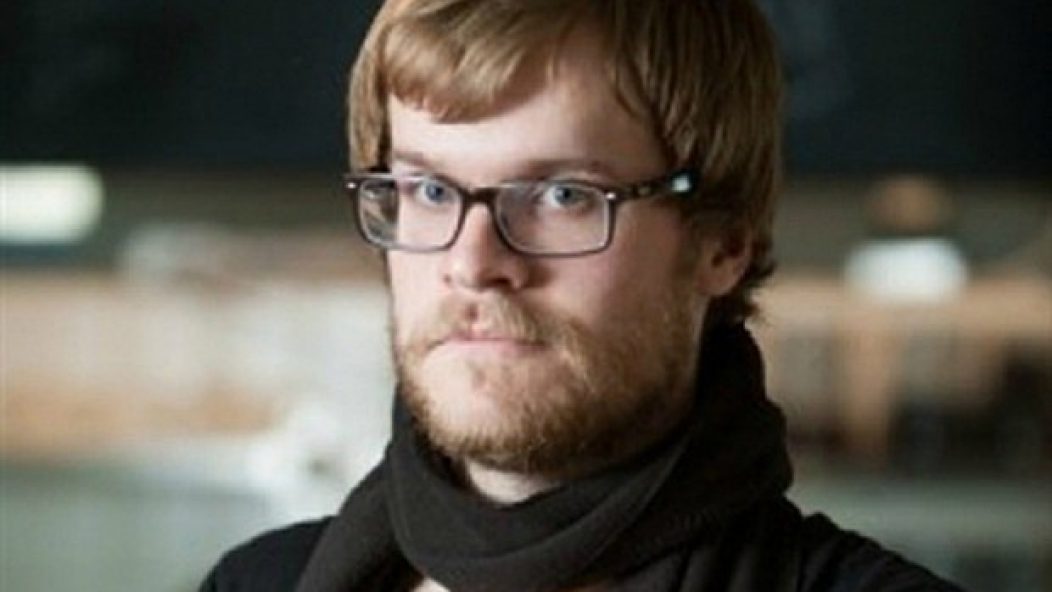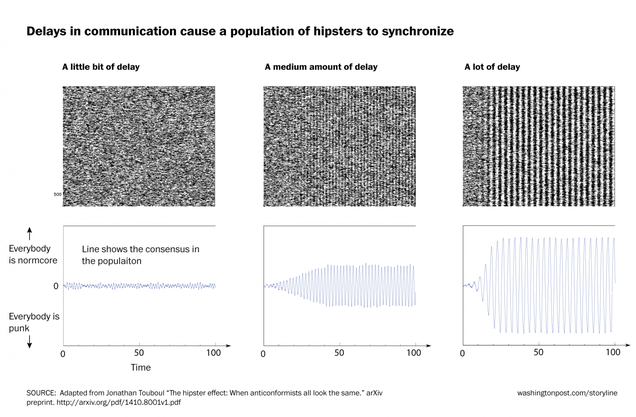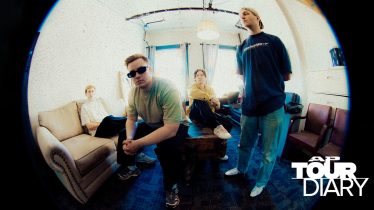
Math proves that all hipsters look the same
Have you ever wondered why all the bearded, flannel-wearing hipsters look exactly the same (despite thinking they’re so unique)?
(Photo: Hipster Barista meme)
Well, there is a mathematical reason why all hipsters look the same, and mathematical neuroscientist Jonathan Touboul of the Collège de France in Paris has figured it out. His paper explains why all hipsters trying to look different from one another end up looking exactly the same.
His research involves neurons: “They fire when every neuron around them is quiet; or they fall silent when every neuron around them is chattering,” he says. In short, they do the opposite of the mainstream and behave like hipsters. But as the Washington Post's Jeff Guo puts it:
“[Touboul's] key insight is that people (and neurons) do not instantly perceive what is mainstream. There's a delay. And in situations where the delay is large enough, the contrarians can inadvertently synchronize with each other.”
According to Businessweek, Trouboul created a mathematical model based on his research. The hipsters—set as anticonformists—in his model were programed to always choose the opposite of what the mainstream did (e.g., if the mainstream chose classical music, the hipsters chose death-metal). If the anticonformists were immediately aware of the choices of the mainstream, their picks had no particular order.
Here’s the key part: If the anticonformists weren’t immediately aware of what the mainstream was doing, things started to change. Trouboul added a delay to the time it took hipsters to figure out what the mainstream was choosing, and all of the hipster choices became the same. (In real life, there is always a delay.)
Touboul sums it up nicely: “If you take large sets of interacting individuals — whether hipsters, stock traders, or any group that decides to go against the majority — by trying to be different, they will ultimately all do the same thing at the same time. The reason for that is the time it takes for an individual to register the decisions of others. You cannot be aware of what other people decide in real time, it takes a while.”
You can read a much more detailed analysis of Touboul’s model via the Washington Post.











